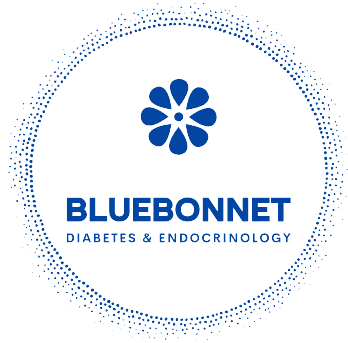Click HERE To Buy Diflucan Online ↓

Introduction to Diflucan and Its Uses
Diflucan, also known by its trade name, is a common prescription (Rx) elixir for combating fungal infections. Crafted to tackle the discomforts of Candida, it's frequently a script taken to address ailments like yeast infections or thrush. While its effectiveness is well-documented, not everyone finds relief in its use, occasionally experiencing side effects or no tangible improvement.
For many, the need for natural solutions emerges from a desire to acommodate specific health concerns or preferences for holistic approaches. Diflucan has become a staple in various treatment plans due to its potency. However, it's not without its detractors, as some seek to lessen their pill burden or avoid potential drug interactions. As such, exploring nature's offerings becomes a compelling venture for those aiming for wellness.
Understanding the Need for Natural Alternatives

In a world where medication is just a script away, the need for natural alternatives to pharmaceuticals like Diflucan is becoming increasingly apparent. As more individuals seek ways to address health concerns without relying on conventional drugs, the popularity of natural remedies is on the rise. This shift isn't just about rejecting modern medicine; it's driven by a desire for holistic health and avoiding potential side effects associated with antifungal meds. With the sticker shock of prescription costs and concerns about long-term use, many ask if there's a path to health that doesn't involve a comp of chemicals.
Engaging with natural alternatives taps into an age-old practice where people turned to nature's pharmacy to solve health issues. Imagine a world where powerful antifungal solutions don't require counting and pouring chemicals, but instead involve leveraging the gifts of nature. People want to explore the synergy of plant-based remedies and the wellness benefits they provide. From probiotics that restore balance to traditional herbs boasting antifungal properties, nature offers a plethora of options that don't have the side effects that often occur with a hard copy of pharmaceuticals.
The drive for natural choices underscores a larger conversation about body autonomy and preventative health strategies. Recognizing the body's ability to heal itself prompts many to embrace alternatives heralded by ancient wisdom. While modern medicine holds undeniable benefits, understanding the body's function and providing it the needed raw materials for self-maintenance can redefine the meaning of being "in charge" of one's health. For many, this journey involves a blend of lifestyle changes, dietary adjustments, and embracing natural paths that allow the body to achieve a harmonious balance without being tied to a temporary fix.
Probiotics: the Friendly Bacteria Solution
When considering diflucan alternatives, probiotics stand out as a compelling script option. These friendly bacteria maintain a healthy balance in the gut, crucial for warding off invasive yeasts like Candida. Alongside being an elixir for digestive health, probiotics bolster the immune system, reducing the likelihood of future fungal occurrences. They work magic by crowding out harmful strains, creating an environment where pathogens struggle to thrive.
Naturally, incorporating foods rich in probiotics, such as yogurt and kefir, can be a practical comp for natural defenses. However, consulting a healthcare professional for sig, or directions, is recommended to avoid any potential hangover effects. Balancing these beneficial bacteria can undoubtedly be a gentler, more harmonious approach to maintaining health.
The Power of Plant-based Antifungals

When exploring the vibrant world of plant-based antifungals, many seek out natural alternatives to prescription options like Diflucan. These botanical warriors, such as tea tree oil and oregano oil, boast potent antifungal properties that can be harnessed in your health regimen. Unlike a typical script from the pharmacy, these elixirs of nature don't require prior auth and are readily accessible. However, it's essential to follow the 'sig' for each plant extract to maximize their effectiveness.
Incorporating these powerful compounds into daily life can be transformative. For instance, the compounds in garlic are noted for their ability to stave off fungal overgrowth. While they may not guarantee instant results as 'stat' medications do, they offer a holistic approach to health. Garlic, coconut oil, and clove can work in harmony to create a potent cocktail against unwanted fungal guests. Some users might find that these natural elixirs and their distinctive aromas arguably offer a unique twist compared to a traditional hard copy of prescription pills—reminding us that nature's pharmacy is as dynamic as it is aromatic.
Boosting Immunity with Nutrient-rich Foods
Nutrient-rich foods play a pivotal role in fortifying the body's immune defenses, which is essential when exploring natural alternatives to diflucan. Incorporating foods high in vitamins C, E, and zinc, such as citrus fruits, nuts, and seeds, can significantly enhance immune function. These powerhouse nutrients support the body in warding off infections, leaving the need for a hard copy of a script potentially less urgent.
Additionally, embracing foods rich in omega-3 fatty acids, like fatty fish and flaxseeds, can reduce inflammation, a common trigger for weakened immunity. A vibrant, balanced diet acts like an elixir for the immune system, ensuring optimal health and minimizing the chances of fungal infections. By prioritizing nutrient-dense foods, one can effectively support their body's natural defense mechanisms, making the possibility of frequent trips to the Drive-Thru pharmacy for refills not so common.
Lifestyle Changes to Prevent Fungal Infections
To effectively guard against fungal infections, incorporating certain lifestyle tweaks is key. Begining with balanced nutrition, incorporating foods rich in vitamins and minerals can fortify the immune system, acting as a natural defense. Staying adequately hydrated and managing stress levels can also play a significant role. Moreover, regular excercise helps boost overall health, ensuring the body remains resilient. Taking a proactive approach to hygiene, like changing socks and underwear frequently and maintaining dry, clean skin, reduces risk significantly. Finally, be mindful of wearing breathable fabrics, such as cotton, to limit moisture build-up.
